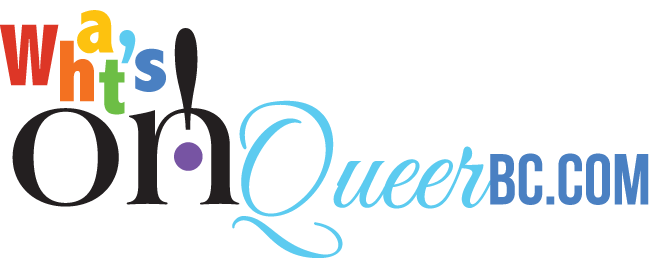Understanding SOGI: What It Is and Why It Matters in Education
In recent years, discussions surrounding identity, inclusion, and diversity have expanded significantly, especially within the educational system. One of the critical frameworks that has emerged is SOGI, an acronym that stands for Sexual Orientation and Gender Identity. While this concept has gained more visibility in the public eye, many still grapple with understanding its true essence and significance, particularly in the context of education. So, what exactly is SOGI, and why does it matter so much in shaping an inclusive and equitable learning environment? Let’s dive into it!
What Does SOGI Stand For?
At its core, SOGI refers to Sexual Orientation and Gender Identity. It’s important to break down these terms individually to grasp their full meaning:
Sexual Orientation: This refers to an individual’s emotional, romantic, or sexual attraction to others. This can be heterosexual (attraction to the opposite gender), homosexual (attraction to the same gender), bisexual (attraction to more than one gender), or any other sexual orientation that exists on a diverse spectrum.
Gender Identity: This is a person's deeply felt internal experience of gender, which may or may not correspond with the sex they were assigned at birth. For example, a person assigned female at birth might identify as male, non-binary, or another gender. Gender identity can be distinct from biological sex or societal expectations of gender roles.
SOGI encapsulates both of these elements, aiming to create a broader, more inclusive understanding of the many ways in which individuals experience and express their identities. In educational settings, SOGI initiatives and curricula aim to foster acceptance, reduce discrimination, and support all students, regardless of their sexual orientation or gender identity.
The Importance of SOGI in Education
So why does SOGI matter in the realm of education? Schools have long been viewed as institutions that shape the minds and futures of young people. As societal norms evolve, it's crucial that education systems keep pace, embracing diversity and cultivating spaces where every student feels seen, heard, and respected.
1. Promoting Inclusivity and Respect
One of the primary objectives of integrating SOGI education is to promote a culture of inclusivity and respect for all students. It's no secret that children and teenagers spend a large portion of their lives in school. If a child feels excluded or marginalized because of their sexual orientation or gender identity, it can have lasting impacts on their mental health, self-esteem, and academic performance.
By teaching about different identities and orientations, schools help normalize conversations around diversity, breaking down harmful stereotypes. When students learn to understand and accept the differences among their peers, they are more likely to create supportive, bullying-free environments. After all, a school should be a place where everyone feels like they belong, right?
2. Reducing Bullying and Discrimination
Bullying based on sexual orientation and gender identity is, unfortunately, a widespread issue in many educational institutions. Research shows that LGBTQ+ students often face higher rates of bullying, harassment, and discrimination, which can lead to negative outcomes like dropping out of school, anxiety, depression, and even suicidal ideation.
Implementing SOGI-inclusive policies and education helps to counteract these challenges. When students are educated about the spectrum of identities and orientations, they become less likely to engage in bullying behaviors rooted in ignorance or prejudice. Moreover, creating a culture of respect and understanding can serve as a powerful tool for reducing discrimination, ensuring all students have the opportunity to learn in a safe environment.
3. Supporting Mental Health and Well-Being
There is a significant link between a student’s well-being and their sense of belonging in school. If a student’s identity is stigmatized, misunderstood, or ignored, it can severely impact their mental health. LGBTQ+ youth are often at greater risk for mental health struggles, largely due to external factors like bullying, family rejection, and lack of supportive communities.
SOGI-inclusive education ensures that students who identify as LGBTQ+ feel validated and supported. This can significantly improve their mental health and academic outcomes. When students see themselves represented positively in the curriculum, they are more likely to feel confident and valued. Moreover, for students who might be questioning their identities, having access to accurate information and a supportive environment can be incredibly affirming.
And of course, students have access to services that provide online help in studying, among SOGI students, everyone knows that there is no ban on using additional services in studying, you can often hear the request "Who can help with my essay?" and students in the SOGI program are more open to help, and turn to writing services in a timely manner, and manage all their assignments, and in general, this has a very positive effect on academic success.
4. Preparing Students for a Diverse World
The world is wonderfully diverse, and our education system should prepare students to thrive in it. By including SOGI topics in the curriculum, schools teach young people how to engage respectfully with others, regardless of their identity. This not only prepares students for diverse workplaces but also helps cultivate empathy and emotional intelligence — traits that are becoming increasingly important in our interconnected world.
SOGI education doesn’t just benefit LGBTQ+ students; it enriches the learning environment for everyone. Understanding and embracing diversity is a vital life skill that enhances problem-solving, creativity, and collaboration. By fostering these skills, schools help students grow into thoughtful, compassionate individuals who can navigate complex social dynamics with ease.
How Can Schools Implement SOGI Education?
Now that we’ve established the importance of SOGI in education, the next question is: how can schools integrate these concepts effectively? Successful implementation involves a combination of curriculum adjustments, policy changes, and community involvement. Let’s explore some key strategies.
1. SOGI-Inclusive Curriculum
One of the most impactful ways to bring SOGI into the classroom is through a SOGI-inclusive curriculum. This doesn’t mean creating entirely new subjects but rather integrating discussions of sexual orientation and gender identity into existing lessons. For example, literature classes can include books by LGBTQ+ authors, history classes can explore significant LGBTQ+ figures and movements, and health education can address issues like gender identity and sexual health in a respectful and inclusive manner.
2. Training and Support for Teachers
Teachers play a pivotal role in shaping school culture. Providing them with adequate training on SOGI topics ensures that they are prepared to support all students and address issues related to gender and sexual diversity. This training should include strategies for fostering inclusive classrooms, addressing bullying, and offering emotional support to students who may be struggling with their identity.
Additionally, having designated staff members or counselors who are knowledgeable about SOGI issues can provide further support for both students and teachers.
3. Clear Anti-Bullying Policies
Every school should have robust, clearly defined policies that address bullying and harassment, particularly in relation to sexual orientation and gender identity. These policies should outline specific consequences for discriminatory behavior and offer protections for students who may feel unsafe. It’s essential that these policies are communicated to both staff and students, ensuring everyone is aware of the standards for behavior and the resources available for support.
SOGI in British Columbia
In British Columbia (BC), SOGI (Sexual Orientation and Gender Identity) is a framework integrated into the educational system to promote inclusivity, respect, and understanding of diverse identities. SOGI 123, a provincial initiative, provides resources and guidance to teachers, students, and parents to create safe and supportive learning environments for all students, regardless of their sexual orientation or gender identity. The program aims to reduce bullying, discrimination, and stereotypes, fostering a culture where every student feels valued and respected. By incorporating SOGI principles into the curriculum, BC schools are preparing students to thrive in a diverse world while supporting the mental health and well-being of LGBTQ+ youth. Samples might inclue:
SOGI-Inclusive Curriculum: Schools incorporate discussions about diverse sexual orientations and gender identities into existing subjects. For instance, in Social Studies, students might learn about historical figures who were part of the LGBTQ+ community, such as Harvey Milk or Marsha P. Johnson. In English classes, reading materials might include books or stories by LGBTQ+ authors or that feature LGBTQ+ characters, promoting diverse perspectives and experiences.
Gender-Inclusive Language and Practices: Teachers and school staff are encouraged to use inclusive language that respects all gender identities. For example, instead of addressing a group of students as "boys and girls," teachers might use terms like "students" or "everyone." Schools may also implement policies that allow students to use the restroom that corresponds with their gender identity or to choose their preferred name and pronouns.
Teacher Training and Professional Development: Educators in BC receive training on SOGI topics, equipping them with the skills to create inclusive classrooms. This training covers how to address and prevent bullying, support students exploring their gender identity or sexual orientation, and integrate SOGI topics into lessons effectively.
Supportive School Policies: Schools in BC adopt clear anti-bullying policies that specifically address discrimination based on sexual orientation and gender identity. These policies ensure that LGBTQ+ students have the right to learn in a safe environment, free from harassment. Staff are trained to respond promptly to incidents of bullying and to provide support to affected students.
Access to Resources and Safe Spaces: Many BC schools provide resources like Gay-Straight Alliances (GSAs) or Gender and Sexuality Alliances, which are student-led clubs that offer safe spaces for LGBTQ+ students and their allies. These groups help build a supportive community within the school, allowing students to connect, share experiences, and promote inclusivity.
Visible Symbols of Inclusion: Schools may display symbols of support, such as pride flags or inclusive posters, to signal that they are safe spaces for all students. These visible signs help reinforce the school’s commitment to diversity and inclusion.
Inclusive Events and Activities: Schools may organize events that celebrate diversity, such as Pride Week or anti-bullying campaigns, which often include activities that educate students about SOGI topics and foster a more accepting school culture.
The Lasting Impact of SOGI Education
Understanding and implementing SOGI in education goes far beyond the classroom. It’s about creating a culture of respect, acceptance, and support for all students, regardless of their sexual orientation or gender identity. When students feel understood and validated, their academic performance improves, their mental health is strengthened, and they are more likely to engage meaningfully with their peers.
SOGI education is an investment in a more inclusive future, where young people grow up with the values of empathy, diversity, and mutual respect. Schools that embrace SOGI not only create safer, more welcoming environments but also prepare students for the complexities of a diverse world. Isn’t that what education is all about? Fostering growth, understanding, and the ability to thrive in a global society?
By implementing SOGI principles in education, we take a significant step toward a future where every student, regardless of their identity, has the opportunity to succeed and feel valued.

